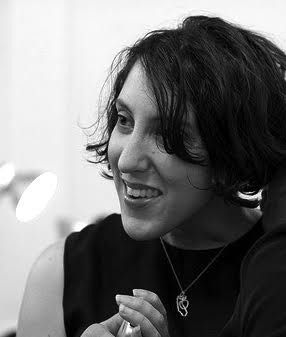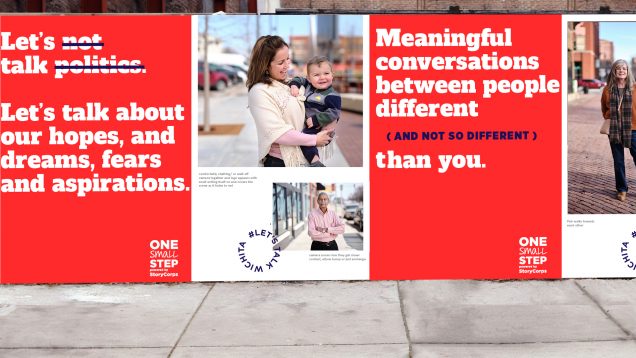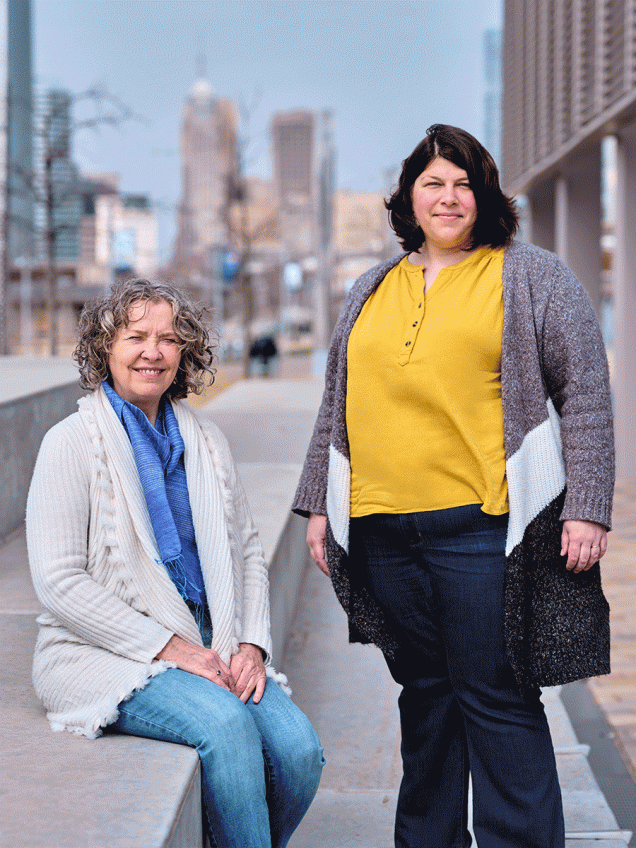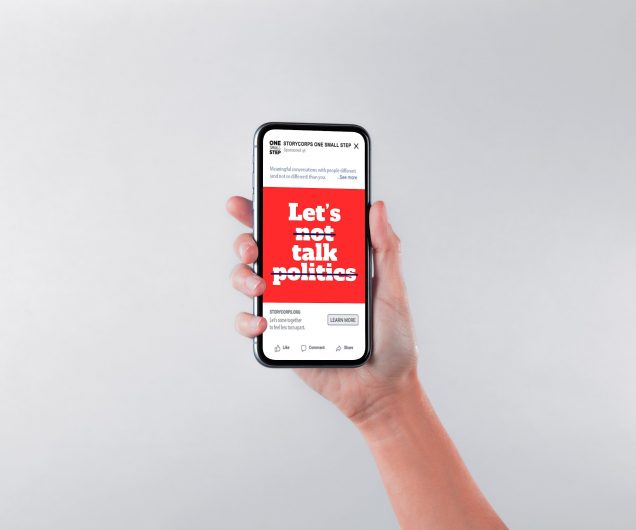Piloted in 2018 and launched in 2021, StoryCorps’ One Small Step is an effort to mend the fraying fabric of our nation–one conversation at a time. This past fall, StoryCorps partnered with IDW (Image Design Works), a creative agency based in Oakland, California, to develop an advertising campaign that launched this month in the four markets where our One Small Step initiative is intensively focused.
Here Leigh Okies, a partner at the agency, talked to us about why her team was excited to work on One Small Step and what surprised her during the campaign development process.

Who is IDW and what sort of work do you do?
We are a creative studio of about 15-20 designers, strategists, artists, and storytellers that work with institutions and companies to develop their brands. Our clients are in many different sectors: from healthcare, to the arts and politics. We recently designed a new brand for Axiom Space, the first private space station that will be replacing the International Space Station in 2028—so now our work can even be seen in space. We essentially help others tell their stories, and for us, the human element is always the throughline in our perspective.
Why was this project of interest to you?
One Small Step’s mission of bringing people together and helping tackle this huge problem of toxic polarization was immediately appealing to our team since, like many people, we want to see political polarization dialed down in America. IDW is committed to taking on projects that we care deeply about and are personally invested in, so this was a great fit.
How did you develop the campaign?
StoryCorps provided us with a lot of initial resources and research which was a great foundation to build out our strategy from. With all of our projects, the end product is always deeply informed by solid strategy. With this campaign, we explored a range of messaging to find the sweet spot between inspiring people to sign up for a conversation by sparking their moral imagination versus leading with a more urgent tone that made them feel like signing up for a conversation was a moral imperative.

Based on our initial research, we created five separate campaign directions that filled in the space between these two extremes. We conducted focus groups and got feedback from potential audiences which really validated leading with messages that spoke from the heart on the moral imagination end of the spectrum. This was a natural fit for StoryCorps which is a very warm and personal brand. For One Small Step, it made sense to turn up the volume in the right ways, like conveying urgency with bold colors and typography, but we had to balance that out with heart-felt messages.
Can you talk about the strategy behind the campaign imagery?
The folks who participated in the focus groups had a lot of civic and local pride. They really wanted to see their communities represented, so we localized the photo shoots in each of the four One Small Step regions, with real One Small Step participants in recognizable local spots. For example, in Oklahoma City we photographed our participants at the Skydance Bridge which is inspired by Oklahoma’s state bird. In Fresno, we shot at Full Circle Brewing which is also well-known locally and has a big, colorful outside mural that reads “City of Fresno.”

Because authenticity is core to StoryCorps’ brand, and to our studio, it felt important to photograph real One Small Step participants. They were all so enthusiastic about the program and excited to be part of the photo shoots. Participants were incredibly generous with their time and we are grateful; including them in the campaign makes the work more meaningful.

As your team developed the campaign, what surprised you?
It was interesting to see how the focus groups reacted to some of the messaging. For example when we tested the headline “Let’s not talk politics,” people hated it. They called it out as feeling disingenuous. But when we crossed out “not” and “politics”—so the message reads, ‘Let’s talk”—that tested really well. That one simple piece of art direction really changed how people perceived the message.
I was also struck by how much our conservative participants, in particular, feel so under attack–there was a lot of tenderness and vulnerability there. I did my own One Small Step interview and even though my conversation partner and I have different political views, it was surprising how much we could agree on and how easy it was to relate to her perspectives.
What are your hopes for the new campaign?
I think we created a heavy hitting campaign that will help build momentum for this important effort. It’s really a David and Goliath story of trying to bring people together while so many forces are trying to pull them apart. My hope is that people sign up, and have this experience. I think our country will be better off for it.
